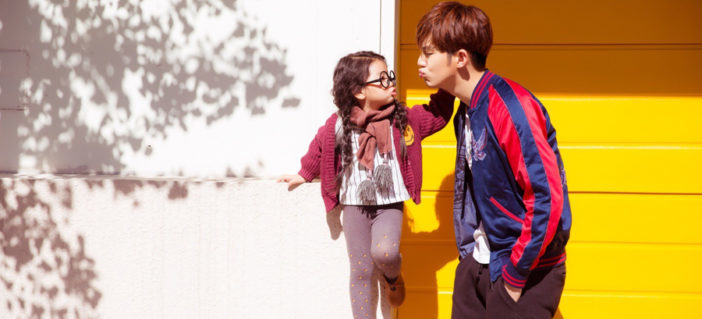I was sitting on the couch with my four-year-old son when he said, “I’m your husband.” He looked up at his father with a smirky smile meaning, “I said it. Whatchya gonna do ’bout it?”
Hubby put on a WWF wrestling face, “What did you say?” He replied in a serious tone.
The boy sheepishly giggled, “She’s my wife.”
Hubby picked up my son and body-slammed him on to our very plush, soft couch while my son screamed and laughed from enjoyment.
He hasn’t dropped his Oedipus complex since that challenge, often declaring that I’m his wife on other occasions, especially when daddy is around, since it’s such good fodder for horsing around. I just assume that he sees the sweetness of his parents’ relationship and wants to express how much he loves me, too. I heard about the Oedipus complex in college while studying the tragedy. Professor Sprague explained that her son was four years old and in love with her when he said, “Mommy, let’s stuff Daddy in a trash can.” Her story was odd to me then, but now it’s so cute.
I couldn’t help but reminisce about these things when I read a recent article by Xinhua about the Chinese show and its intern fathers who came under fire for the inappropriate relationships between adults and children. “Daddy, Where are We Going?” became famous for documenting relationships between male celebrities and their actual children, but new Chinese legislation has protected the amount of coverage that a celebrity child can receive. The show has transformed by still casting male celebrities on the show, but instead, they appear with children that aren’t their own.
Recently, one celeb, Dong Li, has seemed to go too far in his “fatherly” love with a show child star called Arale. The issues include joking comments that Dong made that Arale was his ideal girlfriend, and Arale saying she wanted to marry Dong and that she felt more comfortable around him than her mom. More seriously, the show depicted the two sleeping together with Arale wearing nothing but a shirt and underpants, and promotion of the show was of the two with “pecking kisses.”
Chinese netizens are taking two sides: it’s innocent and promotes paternity, or it’s incredibly irresponsible by promoting inappropriate relationships between adults and children. But chalking this up to simply another case of the Oedipus complex isn’t justifiable. One or both biological parents are able to intervene in such instances and say, “Hey! That one is mine!”
In a Global Times article, Cao Siqi reported that Dong was furious over the “couple fans” who were making articles and videos to highlight the couple-like aspects of the relationship, concerned that such media would hurt Arale. He defended himself, that he had a “sense of propriety” and a female director had taken care of her during the show. It’s also hard to believe that this did not all happen under the watchful eye of one of Arale’s guardians, considering how protective Chinese parents typically are.
Though Dong may not have any malicious intents toward Arale, and positive male role models are a good thing, the producing company’s use of the “couple factor” to promote the show is inexcusable. Their defending comments are back-tracking.
The show’s production company, Mango TV, fanned the flames by posting an online video clip set to a love song and captioned “Dong and Arale’s interpretation of ‘Let’s Fall in Love,'” referring to a famous Chinese dating show. Mango TV is the online division of Hunan TV, one of China’s largest television channels. (Source: Xinhua)
Dong would probably grieved to learn that the majority of childhood sexual abuse cases happen at the hands of someone they know. It’s important that all adults understand they are responsible to keep children safe.
Photo: Official Weibo account of Dong Li

More stories by this author here.
Email: vanessajencks@truerun.com
Twitter: @vanessa_jencks
WeChat: vanessajencks




